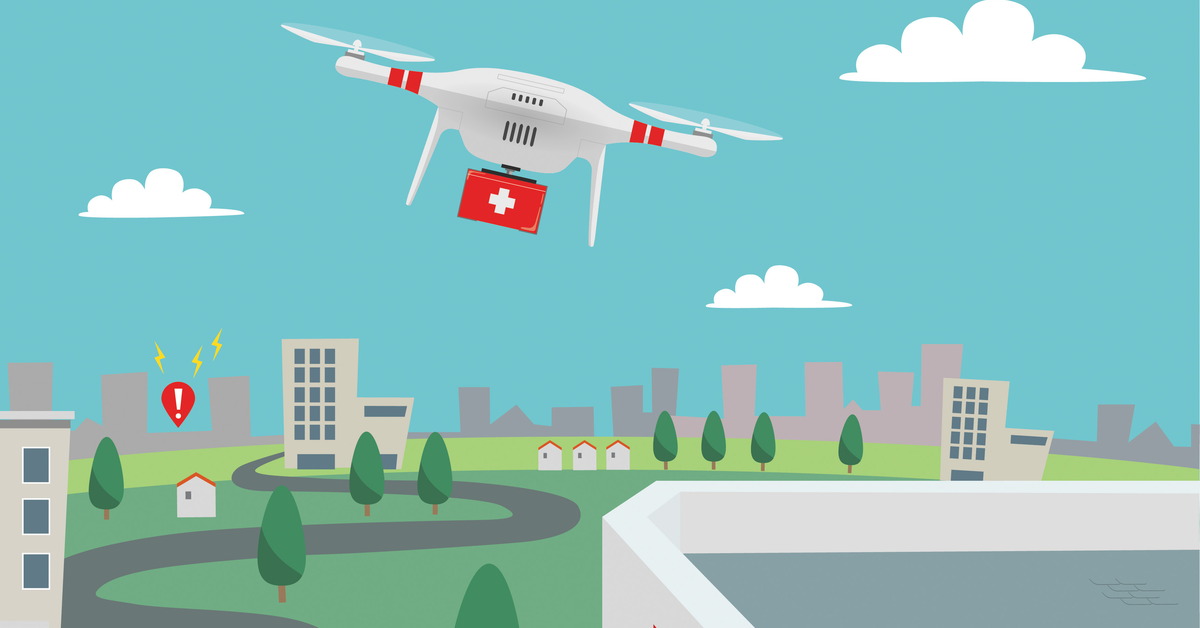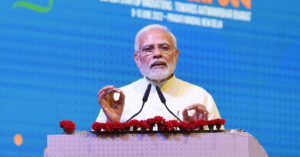As per the document, temperature-sensitive medical supplies and vaccines with a storage temperature between 2°C and 8°C are allowed to be transported by drones
Tablets, capsules, syrups, surgicals, blood bags, and diagnostic biological tissues can also be transported following the guidance
The document is developed based on the ICMR’s learnings from a pilot project it initiated in Manipur and Nagaland for delivering Covid-19 vaccines and other medical supplies using drones
The Indian Council of Medical Research (ICMR) has come out with a guidance document for the use of drones to deliver medical supplies from far away distances.
Obtaining regulatory approvals from authorities for various kinds of drones and utilising the air space for delivering medical supplies, selection of suitable drone model, type of medical supplies which can be delivered, human resources deployment for efficient deliveries are among the topics covered in the document.
It said that temperature-sensitive medical supplies and vaccines with a storage temperature between 2°C and 8°C are allowed to be transported by drones.
Besides, non-temperature sensitive supplies such as tablets, capsules, syrups, surgicals, blood bags, and diagnostic biological tissues like urine, sputum, blood, saliva, pus or other frozen specimens can also be transported following the guidance.
In October 2021, the apex medical research institute initiated a pilot project in the northeastern states of Manipur and Nagaland for delivering Covid-19 vaccines and other medical supplies using drones. The document is developed based on the ICMR’s learnings from the pilot project.
The ICMR said that the document has been introduced after several meetings and discussions with various stakeholders across the Ministry of Health and Family Welfare, Ministry of Civil Aviation and Directorate General of Civil Aviation (DGCA), the governments of Manipur and Nagaland, Airport Authority of India, Indian Army, Indian Air Force and a few air traffic controller offices.
In the next few months, the ICMR would also take up pilots to check the viability of delivering blood bags and biological samples with the help of drones, said a few sources aware of the matter to Moneycontrol.
As per the report, the pilots would be essential to ultimately help in formulating a standard operating procedure (SOP) that the states can follow. After all, it is important to ensure that the drones do not jerk and that samples are stored at the right temperature.
With the help of the pilots, ICMR also wants to check the cost-effectiveness of using drones for supplying blood bags, the sources said.
“Since the usage of drones in the healthcare system is a relatively new venture in the country, there are possibilities of confusion and lack of clarity on standard operating procedures,” Dr Balram Bhargava, director general of ICMR, said in a statement.
Hence, the new guidance document, which is in compliance with the New Drone Rules-2021, details the requirements for obtaining regulatory approvals, selecting suitable specifications of drones and their accessories for conducting specialised delivery operations, handling unforeseen events during field operations and more, Bhargava added.
The government is aggressively promoting the use of drones across sectors, and the usage of drones is peaking up in the country. Prime Minister Narendra Modi inaugurated the Bharat Drone Mahotsav 2022 or Drone Festival of India 2022 in New Delhi last week.
The government has also launched a production linked incentive (PLI) scheme for drones and announced financial assistance for incentivising drone adoption in the agricultural sector.
In February this year, the Indian government banned import of drones to promote homegrown manufacturers of drones. Around the same time, the government also amended the Drones Rules, 2021.
Talking about the ICMR’s new initiative, Amber Dubey, Joint Secretary in Ministry of Civil Aviation, said, “Drone technology has the potential to create revolutionary changes in almost all sectors of the economy and public welfare – like medical deliveries, search and rescue, agriculture, infrastructure development, law and order and national security to name a few.”
According to Dubey, the government is committed to making India a global drone hub by 2030 and healthcare deliveries are a critical part of the same.
Last month, Civil Aviation Minister Jyotiraditya Scindia also said that India has the potential of becoming a global drone hub by 2030.







![Read more about the article [Funding alert] Cultural startup Indic Inspirations raises angel funding of Rs 2.5 Cr from marquee investors](https://blog.digitalsevaa.com/wp-content/uploads/2021/03/Eajz3g3UMAAI0aX-1608619243276-300x150.jpg)

